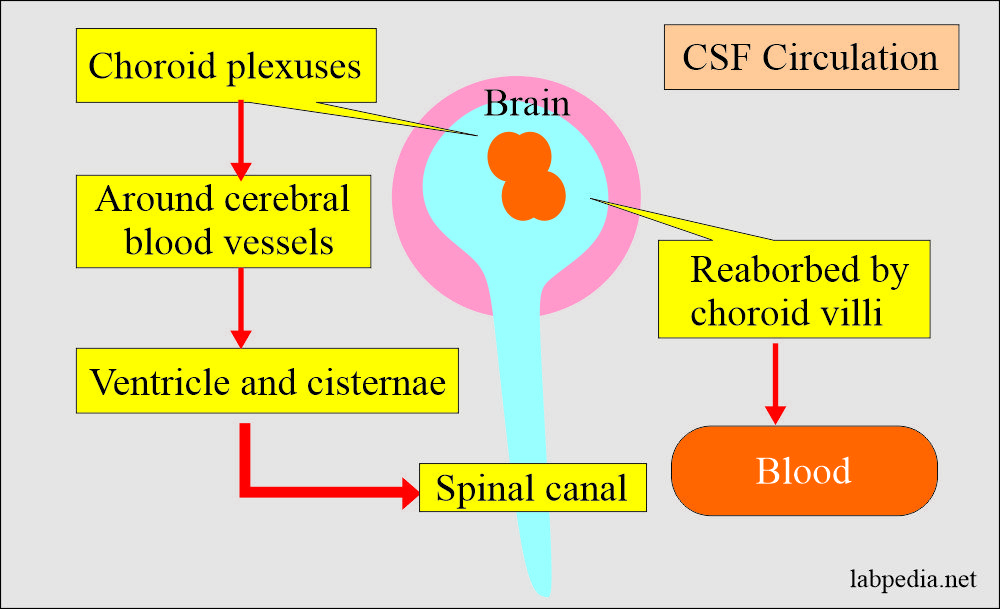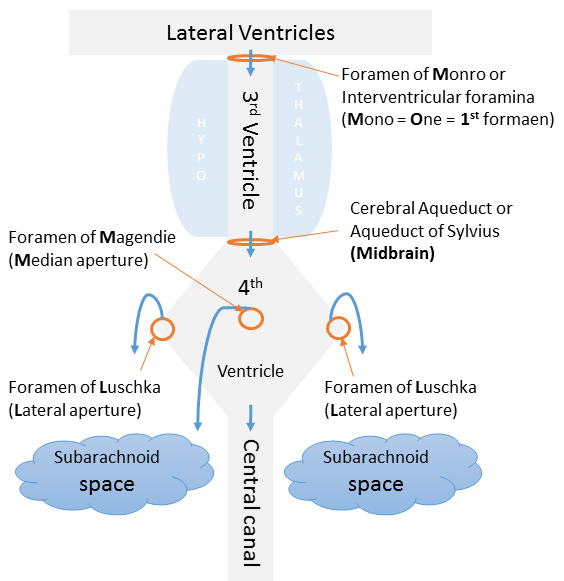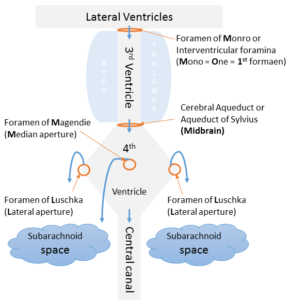Understanding the circulation of cerebrospinal fluid (CSF) is crucial for healthcare professionals and patients alike. CSF plays a vital role in protecting the brain and spinal cord, providing nutrients, and removing waste products. A flow chart depicting the circulation of CSF can help visualize this complex process and aid in diagnosing and treating various neurological conditions.
The circulation of CSF involves four main components: production, flow, absorption, and regulation. Production occurs in the choroid plexus, specialized structures in the brain that produce CSF. From there, CSF flows through the ventricles of the brain and into the subarachnoid space surrounding the brain and spinal cord. Absorption of CSF primarily occurs through the arachnoid villi, small projections that protrude into the venous sinuses and allow for the drainage of CSF back into the bloodstream. Finally, regulation of CSF circulation is essential for maintaining proper intracranial pressure and overall brain health.
Circulation Of Csf Flow Chart
Visualizing CSF Circulation with a Flow Chart
A flow chart detailing the circulation of CSF can provide a clear and concise overview of this intricate process. By visually mapping out the production, flow, absorption, and regulation of CSF, healthcare professionals can better understand how disruptions in this system can lead to neurological disorders such as hydrocephalus or meningitis. Patients can also benefit from seeing a flow chart, as it can help them grasp the importance of proper CSF circulation in maintaining brain health.
Download Circulation Of Csf Flow Chart
Circulation Of Cerebrospinal Fluid Csf Quiz Vrogue co
Brain 101 The Ventricles And CSF Flow Hydrocephalus Association
CSF Circulation Made Simple Epomedicine
CSF Circulation Made Simple Epomedicine




